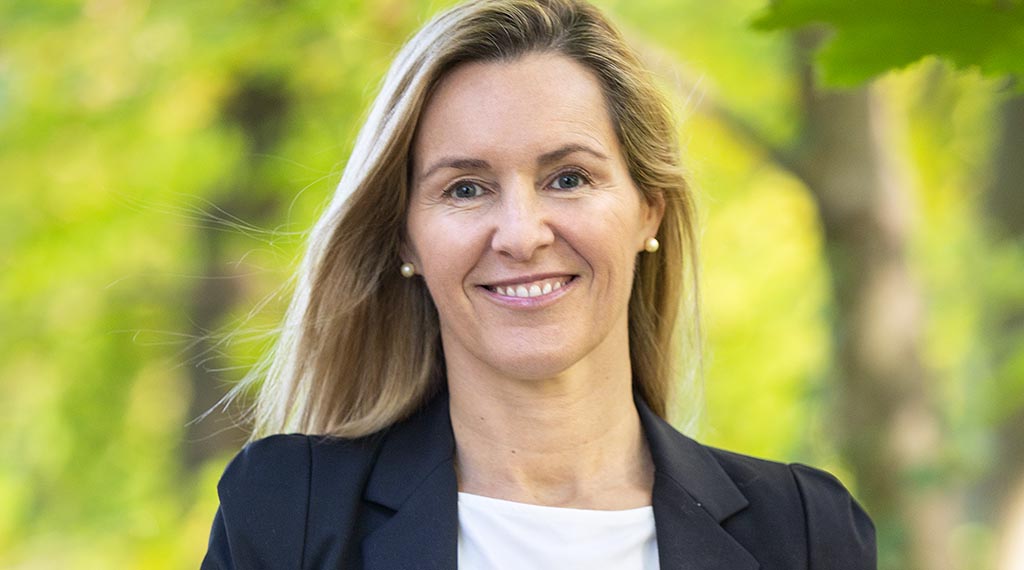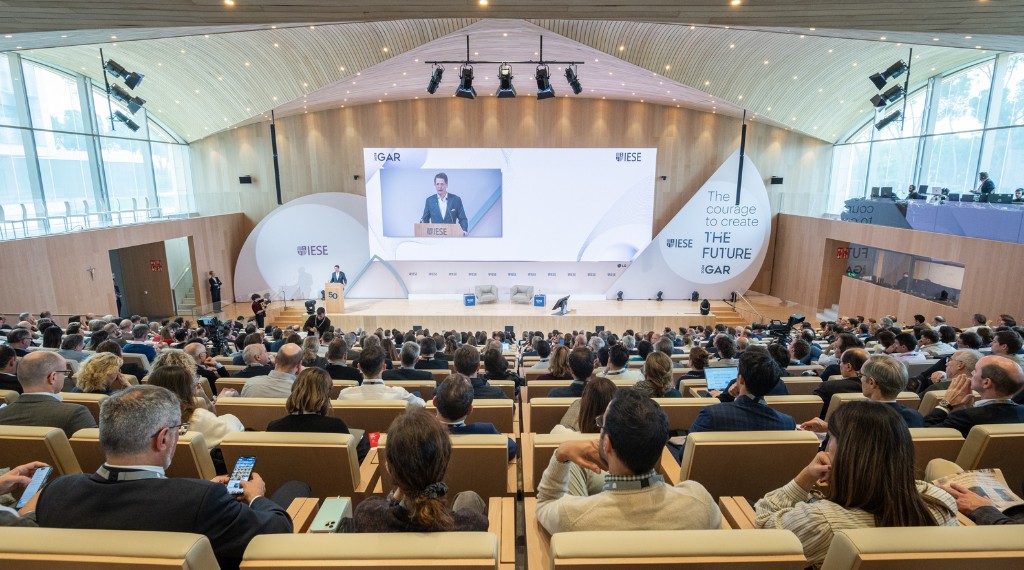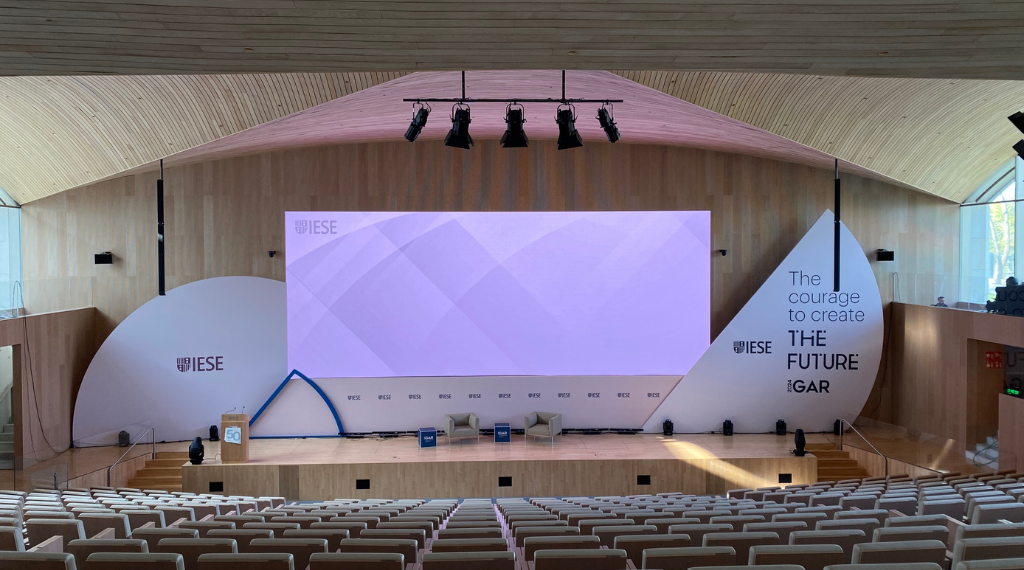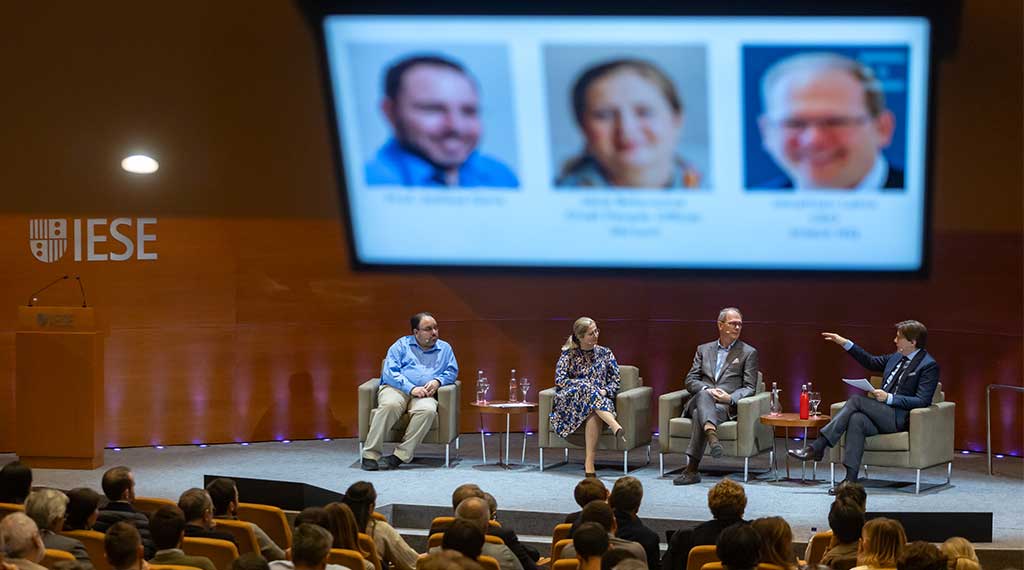Stories
Margarita Oliva : “Be ready”
Persistence and resilience are key when brokering cross-border transactions in the emerging markets of Latin America
Margarita Oliva is Head of Banking and Finance for Latin America at the global law firm DLA Piper. She was named 1 of 10 Biz/Tech Innovators in the 2020 Latina Powerhouse Top 100, co-founded WILL (Women in Leadership in Latin America) and was the first female chair of the Spain-U.S. Chamber of Commerce.
PHOTO: JUAN UDE
December 15, 2020

Margarita Oliva Sainz de Aja, from Granada, Spain, was always attracted to the international scene. She started out teaching international law at Granada University, where she had earned her law degree, and from there won a Fulbright scholarship to Harvard Law School. “I was raised with an open mind, knowing that the world was a big place. Then I realized the world was an even bigger place.”
Returning to Spain after an eye-opening year abroad, she became an associate at a law firm in Madrid. Although it was an international practice, she soon realized it wouldn’t be possible to get a transfer back to the U.S. where she really wanted to be. “So I went to the U.S. anyway and started from scratch,” she says forthrightly, heeding her own advice to others when facing obstacles: “It’s a matter of making your own luck.”
Oliva completed IESE’s Senior Executive Program (SEP) in New York in 2013, the equivalent of what is now the Advanced Management Program (AMP). Here, she reflects on her 24 years as a lawyer brokering cross-border business transactions across the Americas and how persistence is more necessary than ever in these uncertain times.
What was it like arriving in New York in the mid-’90s?
I thought it would be relatively easy: I was a qualified lawyer, I had Spanish-speaking skills, I had international and civil law experience, and I had worked in both the public and private sectors, all of which is very helpful for the kind of transactional work needed in Latin America. But I arrived just after the collapse of the Mexican economy, known as the Tequila Effect, when foreign investors were fleeing the region. Getting a job focused on Latin America was difficult. The circumstances had changed all of a sudden.
That last statement sounds familiar…
Yes, when I talk to young professionals starting out today, they’re going through something similar. Leaving aside all the financial and economic impacts of COVID-19, we’re also seeing a problem in terms of getting visas because the geopolitical environment has changed. For people wanting to pursue international careers, it’s a challenging time – but not impossible. You have to remember, just as things can suddenly change for the worse, they can also just as suddenly change for the better. Be ready. And while you wait for things to change, there are always opportunities to be found. You have to persist.
This is the time to think anew about our vision and our strategies for where we’re going next
We hear a lot about the importance of resilience in facing the current crisis.
Yes, this is the time to think anew about how we do things, how we can improve, to keep refreshing ourselves, our vision and our strategies for where we’re going next, on a personal level and at the global level. The pandemic has made us stop and rethink our short-, medium- and long-term strategies. We should be doing this regularly, not just when we’re forced to, like now.
You landed on your feet and, since 1996, have advised on a variety of corporate financings, M&As and cross-border transactions in the emerging markets of Latin America. Are these markets as hot now or have they lost their shine for investors?
There has been a lot of talk about deglobalization but what I’ve experienced during all these years have been cycles – not everything at the same time everywhere. Even if all the headlines are talking about a backlash against globalization, the reality is it’s a very difficult trend to reverse. Of course the current situation is making people shift their strategies, but there’s still international investment going on at very high rates around the world and particularly in emerging economies.
Especially in my areas of energy and infrastructure, these sectors still require a huge amount of investment. That’s going to continue. And if countries want to push growth – and I’m not just talking about developing economies but even in developed ones like the United States – they will need huge investments. It’s going to happen, regardless.
What about the nature of those opportunities: Are those changing?
Most of what I’m seeing are investments in renewables: solar, wind, hydro. Even if some projects aren’t what you would traditionally consider as renewables – say, infrastructure – you will have some component dedicated to making the project environmentally friendly or sustainable. That’s the trend. Even the big carbon-based energy companies realize there is a change coming and they have been working on their own transition, converting part of their business to the renewable sector and making more investments in that direction. They can’t deny it.
Where is the drive coming from: the outside investor or demand inside the country?
Both. You could have a local developer who gets together with some local business partners to create a solar plant to sell energy to local companies or factories located there. Or it could be an international solar project developer who approaches local partners and they pitch for these opportunities.
The local contacts are key. You need your local contacts who really know what’s going on in the country. That’s something I strongly recommend to my clients: You need to get in touch with local stakeholders – business partners, accountants, lawyers, technical engineers – who really understand your business in order to make an investment successful.
You need local contacts who really know what’s going on in the country to make an investment successful
I guess that’s where you come in. You recently helped broker a Deal of the Year for “truly novel legal work at a level of complexity that broke new parameters” (Latin Lawyer) for the Uruguay Central Railway, a public-private partnership (PPP) that involved a cross-border team in New York, Santiago, Lima, Mexico City and Toronto. How complicated was it to do that remotely?
When we had big, complex negotiations, we used to meet in person. But ever since the 2008 global financial crisis, companies have been less and less inclined to spend large amounts of money on travel. My business travel was already diminishing before COVID-19 and we have been closing transactions virtually for some time now. Everything is done through technology but I find things are getting much easier to do remotely, thanks to better technological tools.
Does that include artificial intelligence?
Most law firms are experimenting with AI to generate hypotheses and actionable insights. I think this can work where things are very standardized, but I don’t think AI will substitute for the role of the lawyer in analyzing and making sense of the information generated.
For example, when brokering deals, like the Uruguay one, where there are cultural differences involved, you need the technical expertise, but you also need to be reading people in a room or in a Zoom call, seeing how they react. There’s a lot of nuance involved. I remember when I started in Latin America, I thought, “We all speak Spanish, we’re all the same,” and then, in the middle of my first transaction, I realized that wasn’t true. You have to be flexible and adapt to different ways of doing things, different ways of communicating the same message. This requires a high level of cultural intelligence that I don’t think AI has yet. That may change as these tools get more and more sophisticated. Certainly, this is something everyone, in all sectors and industries, needs to be paying attention to.
When brokering deals, you need to be reading people in a Zoom call, seeing how they react
So, working at home through the pandemic hasn’t been a problem for you?
I’ve actually been working from home for quite a long time. Twenty years ago, when I was still an associate and started a family, I was the first associate to work remotely a couple of days a week. It was innovative at the time. Some partners were very open to it, others were skeptical. But it worked, not least because I was the most interested person in making it work. Besides, working via teleconferences, with people all over the continent, has been a regular thing for me. What we’ve seen happening more recently because of the coronavirus has been a consolidation of what many of us have already been doing for a while.
However, what I’m finding now is that it has been difficult for a lot of people, including myself, to have more constant isolation, away from coworkers and colleagues. In theory, we can keep going like this for a long time, but I do think it is having impacts on the way we work, on how much we can accomplish, on how connected we feel to our network and to our colleagues. When I talk to friends in other industries, they tell me they’re having a hard time keeping their teams motivated and together. Without a couple days per week in the office, we’re losing some of the human and group component, the glue that keeps things together.
Mentoring women is especially near and dear to my heart
Given the support you received, how are you helping young associates starting out?
I try to create an environment of trust through spending time with them and teaching them the reasons why we do certain things, which is helpful for their development and advancement. The goal is connecting consistently, so they have regular opportunities to bring up anything in a natural and honest way, and not just when there’s a problem.
I do this with both men and women, but mentoring young women is especially near and dear to my heart. Certain professions require the allocation of a lot of time, and you need the help of the institution during certain phases of life. I was lucky to have bosses who allowed me to make necessary changes in my career path. There are trade-offs. We cannot do everything at the same time. You have to pick what works for you at the time. The more the company helps you, the fewer negative consequences there should be on your career.
This interview is published in IESE Business School Insight #157.


